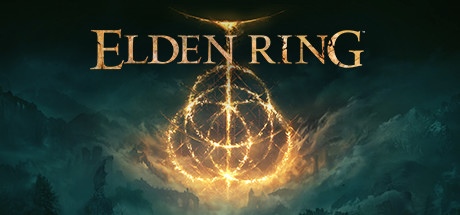Install Steam
login
|
language
简体中文 (Simplified Chinese)
繁體中文 (Traditional Chinese)
日本語 (Japanese)
한국어 (Korean)
ไทย (Thai)
Български (Bulgarian)
Čeština (Czech)
Dansk (Danish)
Deutsch (German)
Español - España (Spanish - Spain)
Español - Latinoamérica (Spanish - Latin America)
Ελληνικά (Greek)
Français (French)
Italiano (Italian)
Bahasa Indonesia (Indonesian)
Magyar (Hungarian)
Nederlands (Dutch)
Norsk (Norwegian)
Polski (Polish)
Português (Portuguese - Portugal)
Português - Brasil (Portuguese - Brazil)
Română (Romanian)
Русский (Russian)
Suomi (Finnish)
Svenska (Swedish)
Türkçe (Turkish)
Tiếng Việt (Vietnamese)
Українська (Ukrainian)
Report a translation problem



 United States
United States 




























Suppose by contradiction, there are finite prime numbers. Let us denote these numbers as p1, p2, p3... pk, the last prime number.
Let M = p1 + p2 + p3 + ... + pk + 1
M is not a prime number because M is greater than any of the prime numbers. Any whole number greater than 1 is divisible by a prime number.
If we subtract all the prime numbers from M, we get:
M - p1 - p2 - p3 - ... - pk = 1.
By this logic, one should be divisible by a prime number bigger than it and give a whole number. But we know that is not the case because that would be retarded. Therefore there are infinite prime numbers
⠄⠄⠄⠄⠄⠄⠄⠄⠄⠄⠄⣠⣶⣾⣿⣿⣿⣿⣿⣿⣿⣿⣿⣿⣶⣤⠄⠄⠄⠄
⠄⠄⠄⠄⠄⠄⠄⠄⠄⢤⣾⣿⣿⣿⣿⣿⣿⣿⣿⣿⣿⣿⣿⣿⣿⣿⡀⠄⠄⠄
⡄⠄⠄⠄⠄⠄⠄⠄⠄⠄⠉⠄⠉⠉⠉⣋⠉⠉⠉⠉⠉⠉⠉⠉⠙⠛⢷⡀⠄⠄
⣿⡄⠄⠄⠄⠄⠄⠄⠄⠄⠄⠄⠄⠠⣾⣿⣷⣄⣀⣀⣀⣠⣄⣢⣤⣤⣾⣿⡀⠄
⣿⠃⠄⠄⠄⠄⠄⠄⠄⠄⠄⠄⠄⠄⣹⣿⣿⡿⠿⣿⣿⣿⣿⣿⣿⣿⣿⢟⢁⣠
⣿⣿⣄⣀⠄⠄⠄⠄⠄⠄⠄⠄⠄⠄⠉⠉⣉⣉⣰⣿⣿⣿⣿⣷⣥⡀⠉⢁⡥⠈
⣿⣿⣿⢹⣇⠄⠄⠄⠄⠄⠄⠄⠄⠄⠄⠒⠛⠛⠋⠉⠉⠛⢻⣿⣿⣷⢀⡭⣤⠄
⣿⣿⣿⡼⣿⠷⠄⠄⠄⠄⠄⠄⠄⠄⠄⠄⠄⠄⠄⠄⢀⣀⣠⣿⣟⢷⢾⣊⠄⠄
⠉⠉⠁⠄⠄⠄⠄⠄⠄⠄⠄⠄⠄⠄⠄⠄⠈⣈⣉⣭⣽⡿⠟⢉⢴⣿⡇⣺⣿⣷
⠀⠀⢰⠀⠀⢂⠡⠼⠊⠁⠈⠉⠉⠁⠐⢢⡀⠀
⠀⠀⠘⡤⠤⠂⠀⠀⠀⠀⠀⠀⠀⠀⣰⣿⣷⡄
⠀⠀⠀⡇⠀⠀⠀⠀⠀⠀⠀⠀⠀⠀⣿⣿⣿⡏
⠀⠀⠀⡇⠀⠀⠀⠀⠀⠀⠀⠀⠀⠀⠈⣻⠟⠀
⠀⠀⠀⡔⠤⡀⠀⠀⠰⣶⠖⢰⠂⠀⠉⠀⠀⠀
⠀⠀⡰⠉⠐⠠⠌⠉⠁⠠⡕⠺⡄⠀⠀⠀⠀⠀
⠀⢰⠁⠀⠀⠀⠀⠀⠀⠸⠼⠀⢸⠀⠀⠀⠀⠀
⠀⠘⡀⠀⠀⡆⠀⠀⠀⠀⠀⠀⠀⡆⠀⠀⠀⠀
⠀⢸⠀⠀⠀⡇⠀⠀⠀⠀⠀⠀⢰⢰⠀⠀⠀⠀
⠀⠘⡦⠔⠤⠃⠀⠀⠀⠀⠀⠀⡟⠁⠀⠀⠀⠀
⢠⣔⣉⠆⠀⠀⠀⠀⢄⠀⠀⠀⣇⠀⠀⠀⠀⠀
⠀⠀⠀⢰⠀⠀⠀⠀⢸⠆⠀⠀⢸⠀⠀⠀⠀⠀
⠀⠀⠀⡆⠀⠀⠀⢀⠈⡢⠀⠀⢀⢕⠀⠀⠀⠀
⠀⠀⠀⠑⠢⠄⣀⣀⣱⠸⠂⠀⠚⠉⠀⠀